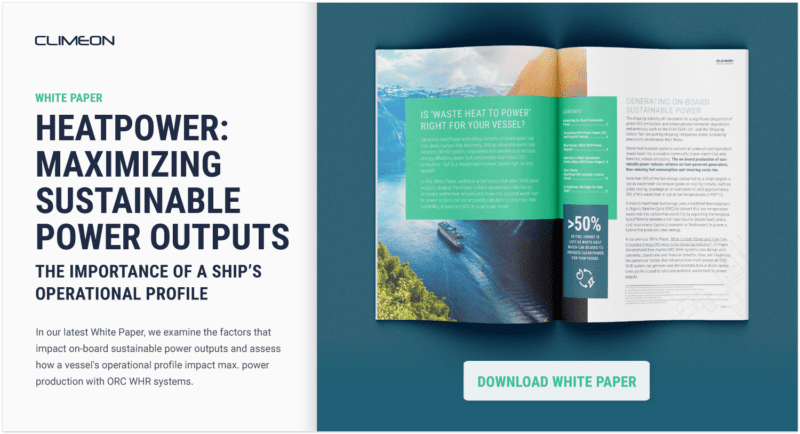Offshore Giants: The World’s Deepest Wells & Biggest Platforms
When the first offshore well was drilled off the coast of Summerland, California, in 1896, few could have imagined just how far the industry would go. That wooden pier-mounted rig...
The maritime industry is undergoing a profound transformation as it confronts the dual challenge of reducing greenhouse gas (GHG) emissions and maintaining operational efficiency. The International Maritime Organization’s (IMO) 2050 mandate for a 70% reduction in GHG emissions has made it imperative for shipowners, shipyards, and shipbuilders to design vessels that go beyond meeting current standards—they must also be prepared for a future defined by alternative fuels and stricter regulations.
Adding to the regulatory landscape, the FuelEU Maritime Regulation, set to take effect on January 1, 2025, introduces progressive GHG intensity reduction targets, requiring vessels to reduce GHG emissions by 2% initially and scaling up to 80% by 2050 (European Commission). These mandates challenge the industry to adopt innovative technologies that align with both immediate and long-term sustainability goals.
Climeon’s HeatPower 300, powered by Organic Rankine Cycle (ORC) waste heat recovery technology, offers shipyards and shipbuilders a fuel-agnostic solution to reduce emissions and enhance energy efficiency, ensuring vessels meet today’s demands while preparing for tomorrow’s challenges.
The Shift to Fuel-Agnostic Ship Design for Shipbuilders and Shipyards
The evolution of marine fuels—from traditional heavy fuel oil to alternatives like LNG, methanol, and hydrogen—has introduced new complexities to vessel design. While these green fuels are instrumental in reducing GHG emissions from the shipping industry, in some cases, they produce less waste heat and steam due to their lower combustion temperatures. This can limit the efficiency of traditional steam-based waste heat recovery systems and high temperature ORCs onboard ships.
Climeon’s ORC waste heat recovery technology offers a critical advantage. Designed to operate efficiently with low-temperature heat (75-105°C), such as the jacket or HT cooling water from engines, HeatPower 300 ensures energy recovery even in these challenging scenarios. This capability allows shipbuilders to future-proof their vessels for a multi-fuel landscape, helping clients achieve operational efficiency and sustainability regardless of the fuel type.
Reducing Lifecycle Emissions for Sustainable Operations
As lifecycle emissions—from construction to decommissioning—become a critical focus for shipowners, technologies that deliver consistent efficiency gains are vital. The FuelEU Maritime Regulation further reinforces this by incentivizing significant GHG reductions over a vessel’s operational life (DNV).
Climeon’s HeatPower 300 addresses this challenge by converting waste heat into clean electricity, reducing fuel consumption and GHG emissions across a vessel’s lifecycle. It can be easily retrofitted during dry-docking or even operation, offering shipowners a practical solution for existing fleets alongside new builds. This technology helps meet regulatory requirements while lowering operational costs, providing both sustainability and financial benefits. For shipbuilders, it adds significant value to new builds, appealing to environmentally conscious clients.
Supporting IMO 2050 Compliance and FuelEU Maritime Requirements
The IMO’s 2050 mandate and the FuelEU Maritime Regulation share a common goal: accelerating the decarbonization of the maritime industry. By 2025, shipowners must meet GHG intensity reduction targets or face penalties(DNV). This underscores the urgency of integrating advanced energy efficiency technologies into vessel designs.
Climeon’s HeatPower 300 plays a pivotal role in supporting compliance by enhancing energy efficiency and reducing emissions. Its ability to utilize low-temperature heat sources ensures it remains effective across a range of fuels, enabling shipbuilders to design vessels that exceed regulatory standards while maintaining high operational performance. This future-ready approach positions shipyards as leaders in sustainable shipbuilding.

Positioning Vessels for Green Certifications and Market Advantage
Green certifications are becoming increasingly important in the maritime sector, signaling environmental responsibility and aligning with client priorities. Climeon’s ORC technology provides shipbuilders with a clear pathway to meeting certification requirements by significantly reducing emissions and improving energy efficiency.
By integrating this technology, shipyards can market their vessels as cutting-edge, environmentally friendly solutions that appeal to investors and operators. This positions shipyards as innovative leaders, ensuring their competitiveness in a market that values sustainability.

The maritime industry’s path to sustainability hinges on innovative vessel designs and adaptable solutions that meet both current and future regulatory demands. Climeon’s HeatPower 300, with its fuel-agnostic efficiency and ability to operate with low-temperature heat, offers a transformative solution for shipbuilders and shipowners alike.
By addressing the challenges of green fuels, reducing lifecycle emissions, and supporting compliance with IMO 2050 and FuelEU Maritime regulations, Climeon empowers the industry to lead the charge toward decarbonization. Whether integrated into new builds or retrofitted onto existing fleets, this technology ensures vessels are ready for the evolving demands of the maritime market.
To learn more about Climeon’s ORC waste heat recovery technology, HeatPower, visit our website, or reach out directly for a project assessment at [email protected] .

Sign up for gCaptain’s newsletter and never miss an update

Subscribe to gCaptain Daily and stay informed with the latest global maritime and offshore news
Essential news coupled with the finest maritime content sourced from across the globe.
Sign Up